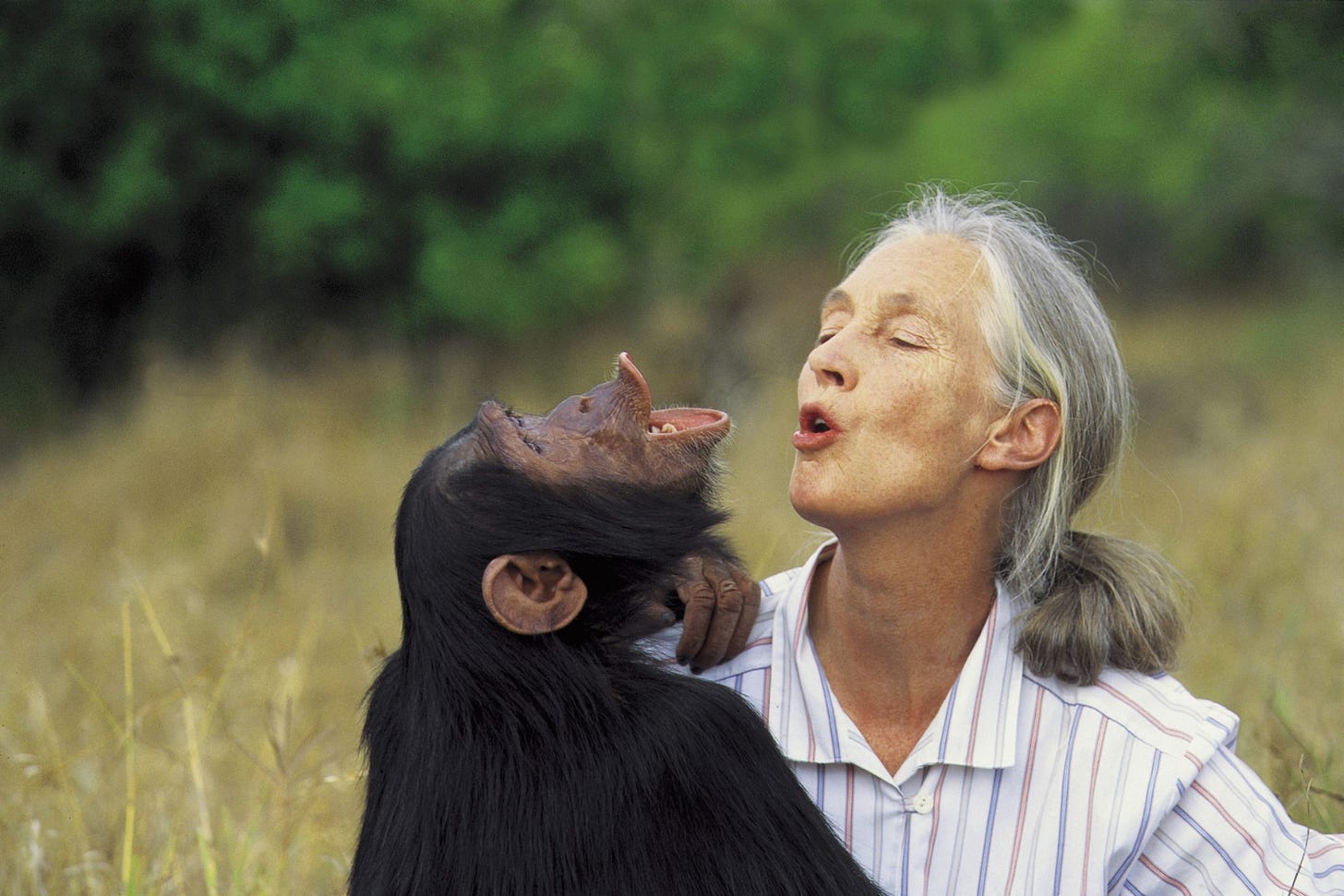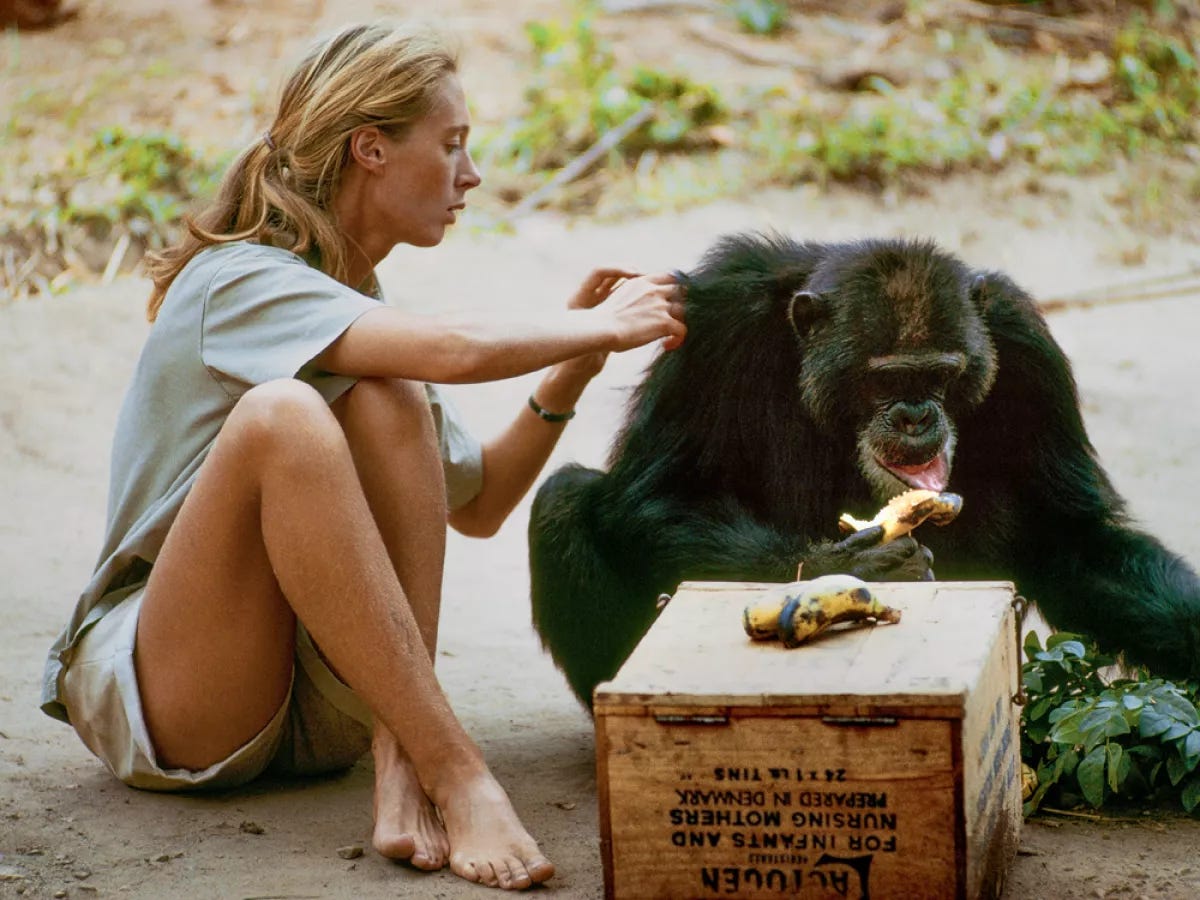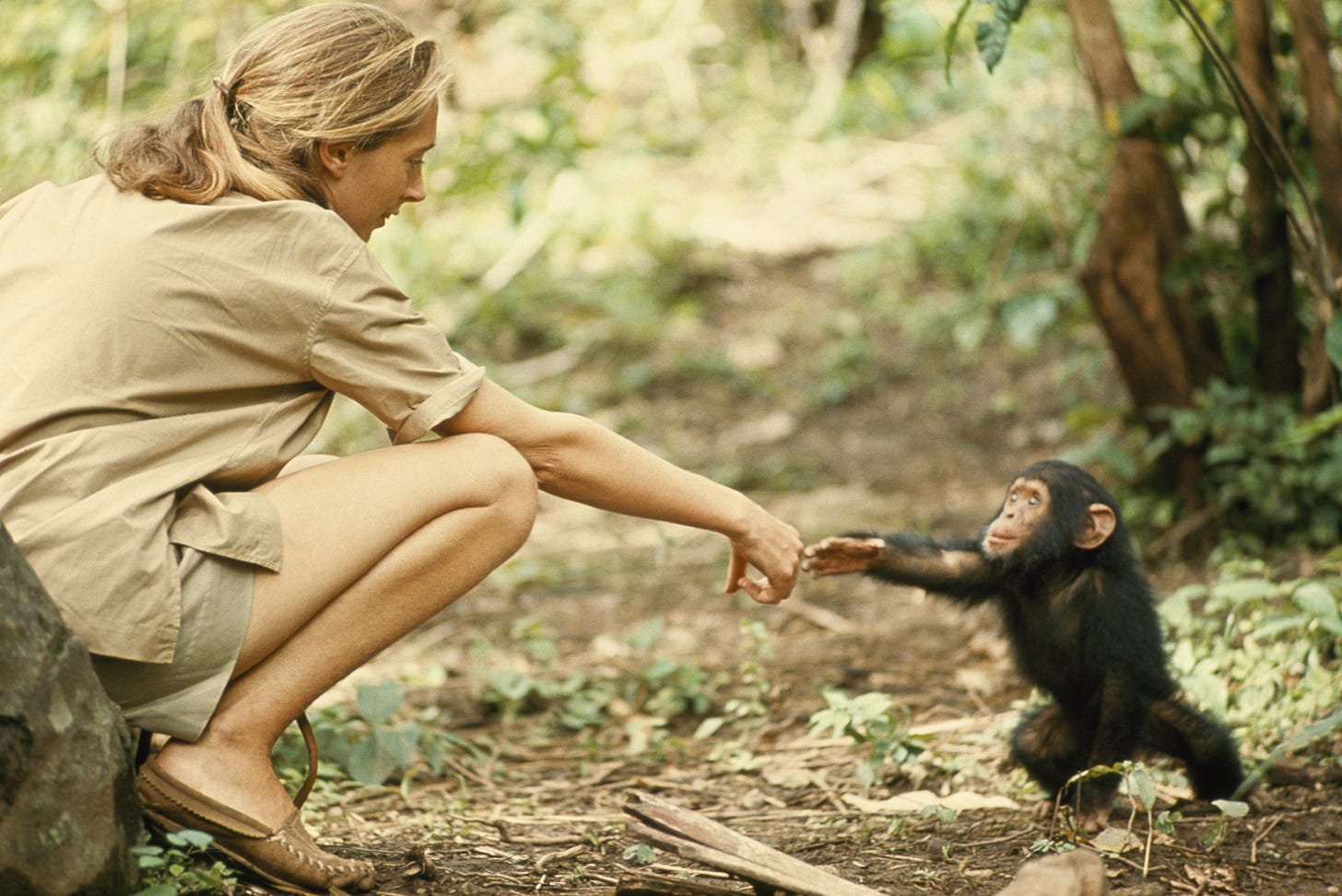RIP Jane Goodall. The chimps will miss you!
The chimps are in mourning. And are full of joy, as they celebrate a human who inspired the entire human race to stay bonded to their kind.
Pioneering Research: Starting in 1960, Goodall’s work in Gombe, Tanzania, revealed chimps’ complex behaviors—tool use, social bonds, emotions, and personalities. Her observation that chimps make and use tools (like sticks to fish for termites) challenged the notion that humans were uniquely intelligent, making chimps relatable and fascinating.
Humanising Chimps: Goodall gave chimps names like David Greybeard and Flo instead of numbers, emphasizing their individuality. Her vivid accounts of their family dynamics, friendships, and even conflicts (like the Gombe chimp war) showed they shared emotions and social structures similar to humans, fostering empathy.
Storytelling and Media: Through books like In the Shadow of Man (1971) and National Geographic documentaries, Goodall brought chimps into living rooms worldwide. Her engaging narratives and footage of chimps hugging, grooming, or playing made them lovable to audiences who’d never seen them up close.
Conservation Advocacy: Founding the Jane Goodall Institute in 1977, she championed chimp conservation, linking their survival to habitat preservation. Her global speaking tours and Roots & Shoots program inspired millions, especially young people, to care about chimps and take action.
Challenging Scientific Norms: As a young woman without formal training, Goodall’s persistence and empathy-driven approach defied male-dominated science. Her relatable journey—arriving in Africa with just a notebook and binoculars—made her a role model, amplifying her message about chimps’ worth.








